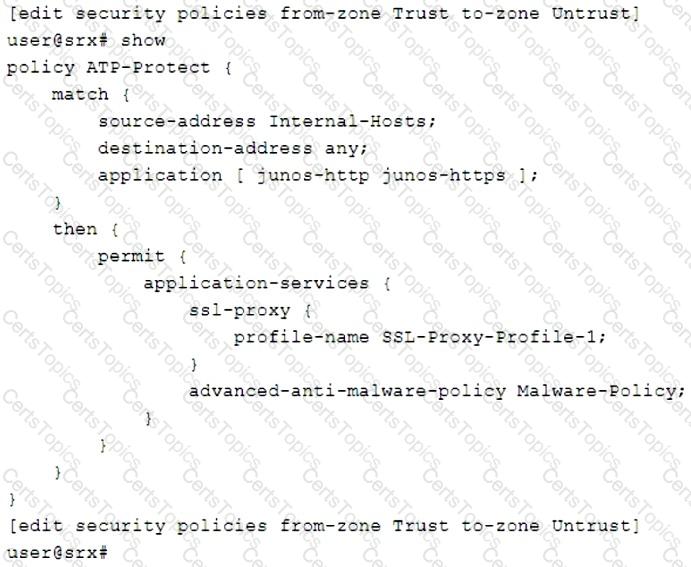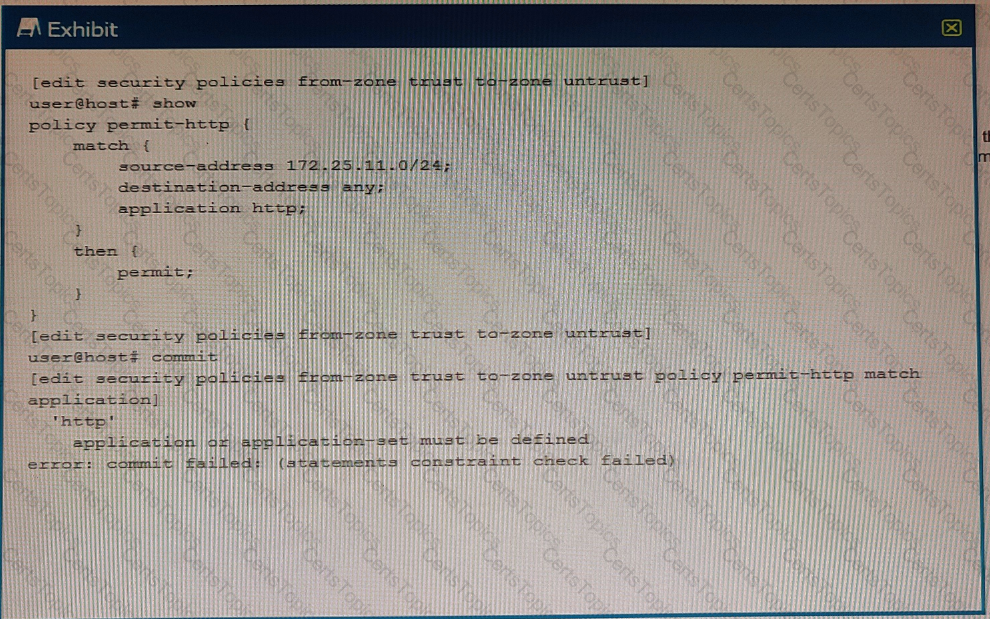Which statement about security policy schedulers is correct?
Click the Exhibit button.

You are asked to create a security policy that will automatically add infected hosts to the infected hosts feed and block further communication through the SRX Series device.
What needs to be added to this configuration to complete this task?
Exhibit

You are trying to create a security policy on your SRX Series device that permits HTTP traffic from your private 172 25.11.0/24 subnet to the Internet You create a policy named permit-http between the trust and untrust zones that permits HTTP traffic. When you issue a commit command to apply the configuration changes, the commit fails with the error shown in the exhibit.
Which two actions would correct the error? (Choose two.)
When a security policy is deleted, which statement is correct about the default behavior of active sessions allowed by that policy?